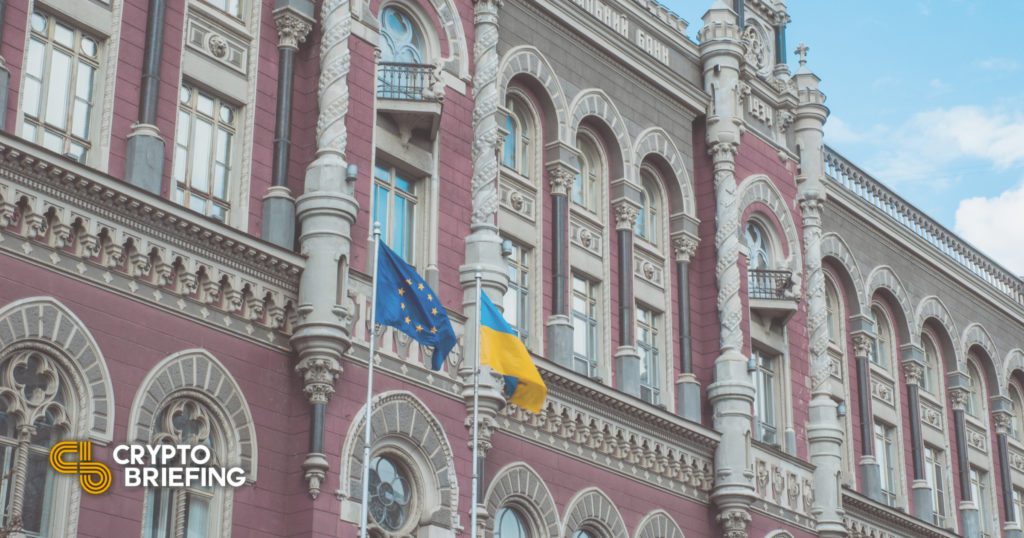
Shutterstock cover by Pavelskyi Vladyslav
Ukraine Blocks Issuance of Digital Money Amid Martial Law
Ukraine has suspended issuing digital cash.
Ukraine’s central bank has temporarily prohibited the issuance of new electronic money and the topping up of digital cash wallets.
Ukrainian Government Restricts Digital Money Supply
Per a Thursday announcement, Ukraine’s central bank has suspended the country’s electronic currency markets. This news comes after the Ukrainian president Volodymyr Zelensky imposed martial law in the country following the invasion of Russian forces earlier today.
The National Bank of Ukraine implemented new rules this morning, including an order to suspend e-money issuers, stop the replenishment of e-wallets with e-money, and halt distribution of e-money to e-money issuing banks. E-money refers to digital fiat cash used with various payment and traditional banking applications.
While it is not clear why the central bank curbed e-money issuance, it may likely be a prudent step to safeguard Ukraine’s financial systems from any cyber-attacks and prevent capital outflows amid the crisis. Notably, the order did not mention cryptocurrencies, which are classed as “virtual assets” under Ukrainian law. However, the reasons why the Ukrainian central bank has placed restrictions on e-money likely also apply to crypto assets.
Russia’s military invasion of Ukraine has negatively impacted global markets, including the crypto sector, which has seen more than $200 billion in value wiped Thursday. Meanwhile, the Russian ruble has tumbled to its lowest levels since 2016 against the U.S. dollar.
While the Ukrainian government may be attempting to prevent capital outflows, the Russian government has indicated it may also take drastic steps in connection with emerging economic sanctions and reports of western nations freezing Russian citizens’ foreign capital.
Nikolai Arefiev, the Russian Communist Party’s deputy of State Duma, the lower house of the Federal Assembly of Russia, told NEWS.ru that the “government will have no other choice but to seize all the deposits of the population.” Arefiev opined that the Russian authorities could potentially seize about 60 trillion rubles or $750 billion of its citizens’ bank deposits in response to international banking sanctions.
Disclosure: The author does not own any cryptocurrency mentioned in the piece.
